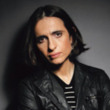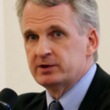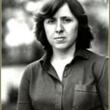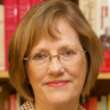Nothing is true and everything is possible: the surreal heart of the new Russia
Description
More Details
9781610396004
9781518935503
Table of Contents
From the Book - First edition.
Subjects
Business
Corruption -- Russia (Federation)
History
Interviews -- Russia (Federation)
Nonfiction
Power (Social sciences) -- Russia (Federation)
Russia (Federation) -- Economic conditions -- 1991
Russia (Federation) -- History -- 1991- -- Biography
Russia (Federation) -- Social conditions -- 1991
Social change -- Russia (Federation)
Social problems -- Russia (Federation)
Similar Titles From NoveList
Similar Authors From NoveList
Published Reviews
Booklist Review
The new Russia has caught on to the West, adopting its language of democracy and capitalism, all while still state-controlled as it has moved from communism to perestroika to shock therapy to penury to oligarchy to mafia state to mega-rich, declares Pomerantsev. The son of Russian émigrés, raised in England, a self-described third-rate assistant to others' projects, Pomerantsev returned to Russia to work in the fast-growing television and film industry. With little to recommend him other than having lived and worked in London, he was given enormous power and entrée to observe Russia's propaganda machine. He chronicles encounters with leggy blondes studying at gold-digger academies, gangsters turned television producers, legions of expats returning to make money, and international development consultants evangelizing on behalf of democratic capitalism but blind to the realities of the new Russia. Pomerantsev offers a scathing and totally engaging portrait of corruption and illusion in a place of gangsters and glitterati, of sudden dizzying oil wealth, numbing old poverty, and the same old politics wrapped up in exciting new packaging.--Bush, Vanessa Copyright 2014 Booklist
Publisher's Weekly Review
This debut from television producer Pomerantsev vividly describes the decade, starting in 2001, that he spent in Vladimir Putin's "New Russia" pursuing a film school degree and TV work. Along the way, it reveals the complex truth about 21st-century Russia, with all of its new possibility, wealth, power, and corruption. Born in Kiev but raised in England by exiled Russian parents, Pomerantsev decided to move back to his native country, partly because he felt like he had "always been an observer looking in at Russia" and "wanted to get closer." The book is divided into distinct parts-"Reality Show Russia," "Cracks in the Kremlin Matrix," and "Forms of Delirium"- suggesting the three-act structure taught in modern screenwriting manuals and emphasizing the feel of "performance" in the new Russia. Highlights of the narrative include Pomerantsev's experiences producing a TV documentary called How to Marry a Millionaire (A Gold Digger's Guide), interviewing gangster-turned-movie star Vitaliy Djomochka, attending a lecture by Kremlin propaganda mastermind Vladislav Surkov, and sampling the excess of Moscow nightlife. Sometimes horrifying but always compelling, this book exposes the bizarre reality hiding beneath the facade of a "youthful, bouncy, glossy country." Agency: Melanie Jackson Agency. (Nov.) (c) Copyright PWxyz, LLC. All rights reserved.
Kirkus Book Review
Everything you know about Russia is wrong, according to this eye-opening, mind-bending memoir of a TV producer caught between two cultures.Born in Russia but raised in Europe, where he is now a London-based writer, Pomerantsev felt compelled to return to his homeland after the turn of the century: "I wanted to get closer: London seemed so measured, so predictable, the America the rest of my migr family lived in seemed so content, while the real Russia seemed truly alive, had the sense that anything was possible." He got more than he bargained for, an experience far different from anything he had anticipated, though he did return from Russia with a wife and daughter (barely mentioned until the end, where he also acknowledges that he has "scrunched time mercilessly to tell my story"). Instead of a cohesive overview or chronological progression, the author records his impressions more like a kaleidoscopic series of anecdotes and vignettes, absurd and tragic, with characters that might be tough to believe if they were presented as fiction. There are the legions of strikingly beautiful women who blur the distinction between gold digger and prostitute. There are the Night Wolves, a motorcycle gang that is "the Russian equivalent of the Hells Angels" but who "are bikers who have found a Russian God." There is corruption at every level, from officials who prefer bribes to taxes to a criminal system in which "99% of those charged in Russia receive guilty verdicts." There is also reality TV, which demands heroes and happy endings, even when the subject is a ravishing model who was either murdered or committed suicide after indoctrination by a brainwashing cult, which the author suggests are as inherently Russian as vodka. And there is "the great war between Holy Russia and the Godless West" in a Russia that both emulates and reviles the crass excesses of capitalism. Not always cohesive, but the stylish rendering of the Russian culture, which both attracts and appalls the author, will keep the reader captivated. Copyright Kirkus Reviews, used with permission.
Booklist Reviews
The new Russia has caught on to the West, adopting its language of democracy and capitalism, all while still state-controlled as it has moved "from communism to perestroika to shock therapy to penury to oligarchy to mafia state to mega-rich," declares Pomerantsev. The son of Russian émigrés, raised in England, a self-described third-rate assistant to others' projects, Pomerantsev returned to Russia to work in the fast-growing television and film industry. With little to recommend him other than having lived and worked in London, he was given enormous power and entrée to observe Russia's propaganda machine. He chronicles encounters with leggy blondes studying at gold-digger academies, gangsters turned television producers, legions of expats returning to make money, and "international development consultants" evangelizing on behalf of democratic capitalism but blind to the realities of the new Russia. Pomerantsev offers a scathing and totally engaging portrait of corruption and illusion in a place of gangsters and glitterati, of sudden dizzying oil wealth, numbing old poverty, and the same old politics wrapped up in exciting new packaging. Copyright 2014 Booklist Reviews.
Publishers Weekly Reviews
This debut from television producer Pomerantsev vividly describes the decade, starting in 2001, that he spent in Vladimir Putin's "New Russia" pursuing a film school degree and TV work. Along the way, it reveals the complex truth about 21st-century Russia, with all of its new possibility, wealth, power, and corruption. Born in Kiev but raised in England by exiled Russian parents, Pomerantsev decided to move back to his native country, partly because he felt like he had "always been an observer looking in at Russia" and "wanted to get closer." The book is divided into distinct parts—"Reality Show Russia," "Cracks in the Kremlin Matrix," and "Forms of Delirium"— suggesting the three-act structure taught in modern screenwriting manuals and emphasizing the feel of "performance" in the new Russia. Highlights of the narrative include Pomerantsev's experiences producing a TV documentary called How to Marry a Millionaire (A Gold Digger's Guide), interviewing gangster-turned-movie star Vitaliy Djomochka, attending a lecture by Kremlin propaganda mastermind Vladislav Surkov, and sampling the excess of Moscow nightlife. Sometimes horrifying but always compelling, this book exposes the bizarre reality hiding beneath the facade of a "youthful, bouncy, glossy country." Agency: Melanie Jackson Agency. (Nov.)
[Page ]. Copyright 2014 PWxyz LLC



































